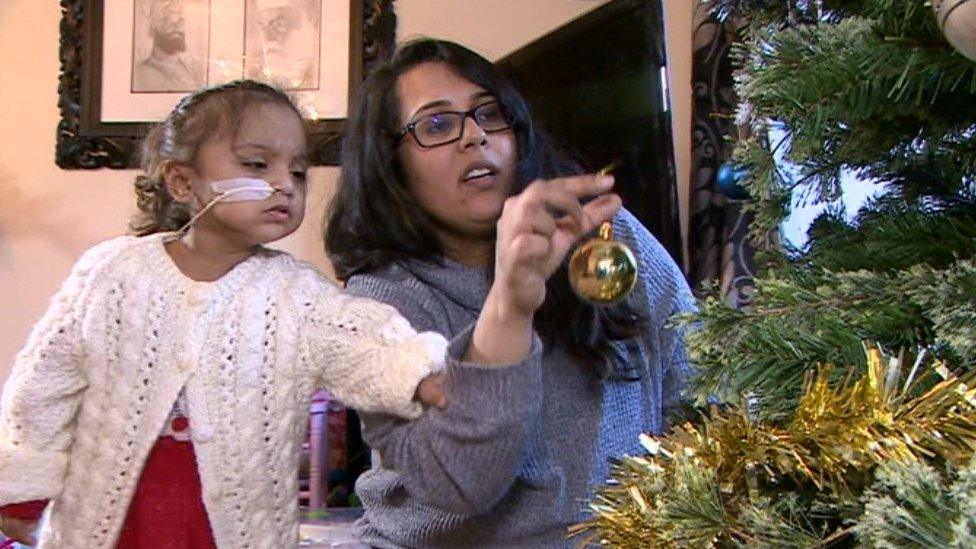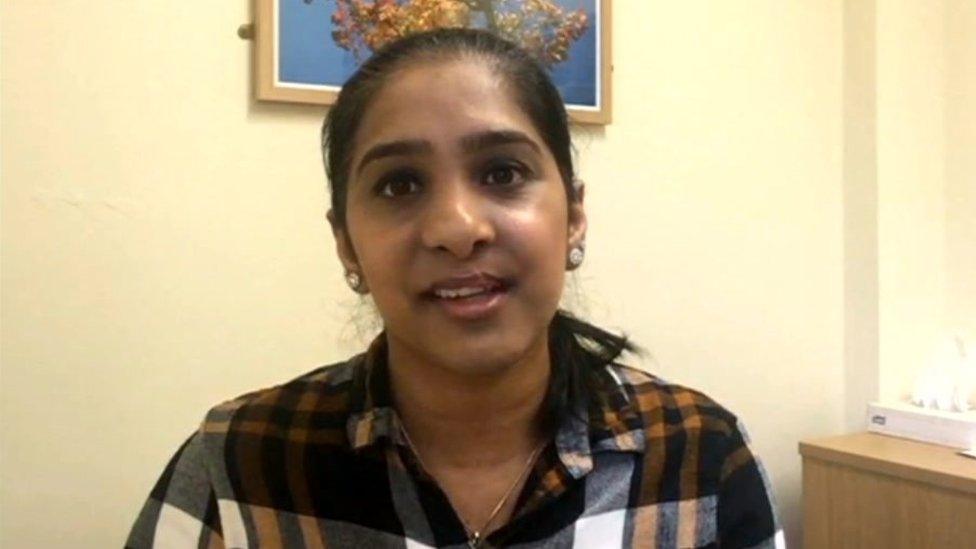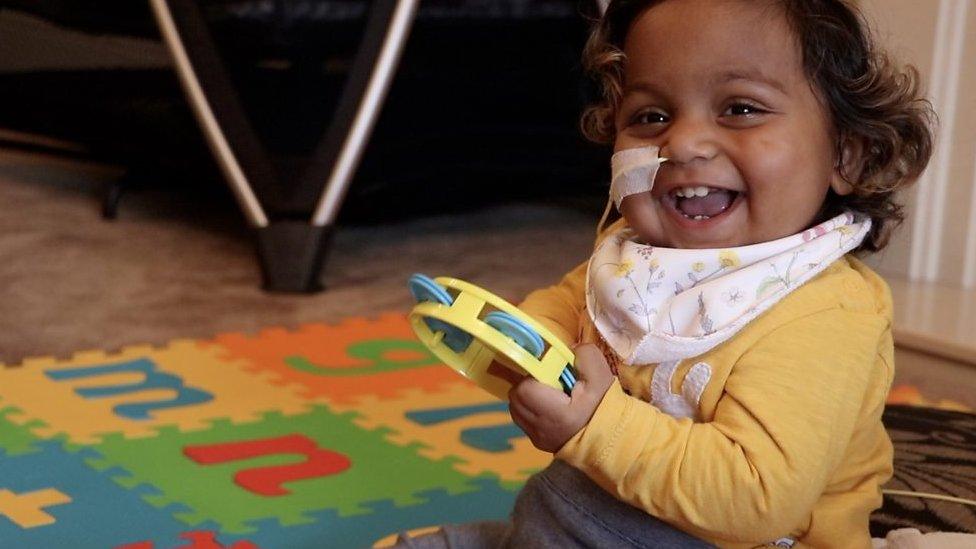Girl, two, receives kidney from 'superhero' donor
- Published

Anaya had been given "a couple of hours to live" by doctors
A critically ill two-year-old girl born with kidney disease has received a donor organ after her family launched a social media appeal.
Anaya Kandola, of Newcastle, had both her enlarged kidneys removed having been diagnosed with a rare condition.
After seeing the appeal on Facebook, Surinder Sapal, 36, of Wakefield, volunteered to donate one of hers.
Anaya's mother, Joety, described Ms Sapal as "a superhero" and said she had her "heartfelt gratitude".
Anaya was born with autosomal recessive polycystic kidney disease, external (ARPKD) and has had dialysis treatment for most of her life. She also suffered a stroke aged six months.
As organ donors' details are not passed on to recipients or their families, Mrs Kandola wrote a thank you message in a card given to health chiefs and provided her phone number should Ms Sapal wish to get in touch.
'Very emotional'
She said: "The day she was born the doctors told us she had maybe a couple of hours or days to live.
"I was thinking 'How do I thank this person who has saved my daughter's life?' I just penned my thoughts and heartfelt gratitude and said they'd come into our lives as a superhero.
"We're very, very grateful to her and she will be part of Anaya's life forever.
"I left my phone number in the card in case she wanted to contact me so she messaged me and I then rang her. We had a very emotional conversation - we cried and we laughed."
A lack of donors from black, Asian and minority ethnic (BAME) communities meant the family struggled to find a suitable match.

Surinder Sapal said her family were now "proud" of her actions
Ms Sapal, a radiographer at Leeds Teaching Hospitals Trust, said: "Being a mum myself I thought if my child needed help I would look to a stranger so why not me being a stranger helping another child?
"It was amazing seeing this tiny human thriving on this gift I've given her.
"Coming from an Asian family, it's frowned upon to give an organ away so everyone was against my wishes. Now I've done it, everybody is so proud."
The transplant operation was carried out in September at a Newcastle hospital.
- Published9 October 2018
